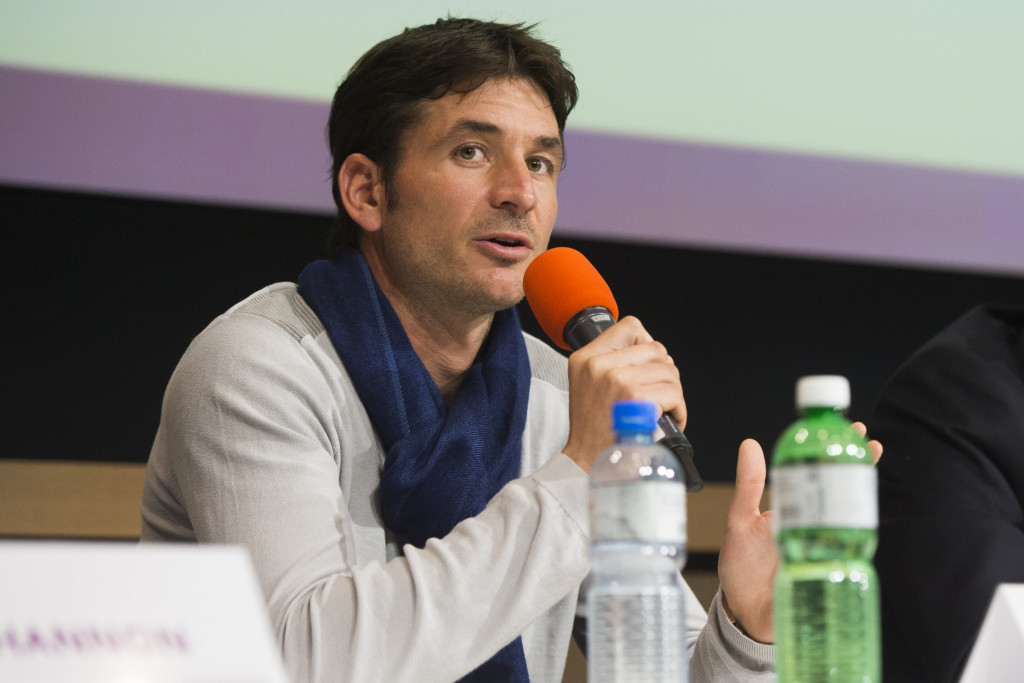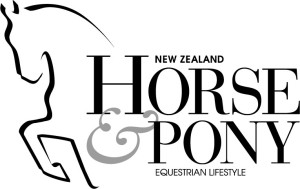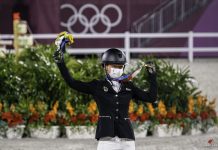Thanks to FEI TV and insomnia, I watched the eventing rules session at the FEI Sports Forum without having to travel to Lausanne. There were a number of key points discussed, from changing the name through to competitors riding cross-country in colours more aligned to their team flag.
Cross purposes
The name-change topic was left until the very end, and the facilitator, Giuseppe Della Chiesa (Chair of the FEI Eventing Committee) had to repeatedly state time had run out, so the discussion was fairly short and to the point. Just when I had begun to think our New Zealand representatives, Vicki Glynn (CEO of ESNZ) and Richard Sunderland (Chair ESNZ) had somehow missed the session as I hadn’t spotted them in the audience nor heard them, Vicki made a strong point to support another suggestion to utilise the word “cross” in the name to accentuate what is different about eventing from the other disciplines. Apparently Winter Olympic sports have recently taken up this word in the title of some of their events, such as snowboard cross, or ski cross. If you find yourself explaining eventing to any of your non-horsey mates, they usually get it when you say “cross-country”. Whether this goes any further, or the current FEI preferred suggestion of “equestrian triathlon” prevails, time will tell. But good to see you speaking up, Vicki!
The consultation process and timetable at the Forum have not been designed so that consensus is necessary, and probably just as well as the ideas ranged from status quo through to … well, let’s say innovative. Giuseppe frequently stressed that points had been noted and would be taken into consideration as the rules were revised.
Very vocal
Mike Etherington-Smith (former Chair of British Eventing and cross-country course designer) and David O’Connor (US Eventing Coach) were very vocal at the forum, to the point where Giuseppe repeatedly pointedly asked for comments from other attendees rather than Mike and David – who happened to be sitting beside each other. I thought the points they made, however, were very valid and had a commonsense approach which took into account rider and horse development and horse welfare.
Another making good points, including a plea to keep eventing as the name of the sport, was New Zealand’s Bruce Haskell, representing the International Eventing Riders Association. He supported the idea that with a bit more work on educating people about what eventing was, the name would be fine, and would save a lot of expensive name-changing for national federations.
What to wear
Other topics discussed included what riders wear cross-country. There was more time devoted to this than I personally thought it warranted and a good point was made by some delegates that the uniforms are usually dictated by individual countries’ Olympic uniforms which change frequently. There was a little discussion on de-formalising the dressage and show jumping attire but it didn’t seem to go anywhere. There were some comments about how many European countries would have trouble differentiating, with many sharing the same colours on their flags, but no-one mentioned the similar issue we would have with our neighbours, or that our current uniform is based on a colour that isn’t even in our national flag. I could go on, but we have all had enough of flag discussions here in NZ after our referendum…
On the levels
There seemed to be support for the idea of making changes to the naming of individual levels, so that 105 became one-star through to current three-stars becoming four-star but not much support for the idea that instead of calling the current four-star events five-star, they be called classics.
Devil in the detail
On moving to a positive scoring system, the delegates generally appeared to me to be open to the idea, but the devil is going to be in working out the detail, and there was some concern that it would require a lot of re-educating people who were only now getting to grips with the current system.
Qualifying scores
As to the qualification system, again there appeared to be support for a clear cross-country jumping round being absolutely necessary to gain a qualifying score, instead of a current 20 penalties plus time.
Summing up
It was an interesting experience observing the Forum, and how much weight the delegates’ comments are given remains to be seen. Many delegates did not comment, with the main contributors seeming to be UK, Germany, Ireland, US, Canada, Netherlands and Australia, but ample opportunity was given and Giuseppe did a good job of keeping things ticking along.

At previous sessions (which I did sleep through), various speakers from outside the sport gave their opinions on equestrian sport. Show jumper Steve Guerdat also attended and this has been widely reported, including the FEI report on this link. On the proceedings since then, there has been another FEI report which is reproduced below.
Social media picks up on “old white dudes” panel

The FEI photo above has provided fodder for many on social media, with some brilliant comments. The all-male, middle aged panel utilised on the discussion “change or be changed” didn’t go unnoticed. “It’s too bad there aren’t many women interested in horse sports” said one witty person. Others suggested the “old white dudes” may find it a challenge to change the minds of the millions of women involved at grass roots level. One of the panellists is quoted in the FEI report below, and it also includes this statement about equestrian sports: “the whole gender equality thing, it’s brilliant…” Talk is cheap but what about actions being louder than words and actually having a better panel representation? Ooops, FEI, perhaps not a great move – although, to be fair, there were a lot of women involved in other panels and in the discussions. There were certainly some great opinions and strong women’s voices among the women delegates who did speak up, even if they were in the minority.
The Federation has produced this great little video about what they are trying to achieve. Well worth a look if you want to understand why there is such a push to reduce the teams to three riders. It all boils down to trying to get more nations involved at Olympic level and grow the participation of our sport. From a nationalistic point of view, this could mean we have more opportunity to regularly field teams in jumping and dressage than we have in past Olympics. The video does seem to focus on the jumpers, and the forum did cover other disciplines. The video can be found on this link.

The FEI has also provided this report of the day’s discussions, reproduced below, a useful read for those interested.
FEI report
Olympic Press Committee member Alan Abrahamson gave a reality check to a record number of delegates at the FEI Sports Forum as almost 320 participants debated the future shape of equestrian sport in Lausanne (Switzerland) today. “What you’re facing is nothing less than a reality check for the sport”, the former Los Angeles Times and NBCOlympics.com correspondent said.
“A lot of the public don’t know anything about equestrian sport. There are tons of new sports trying to knock on the Olympic door. Skateboarding, surfing and rock climbing are almost guaranteed to be on the Olympic programme for Tokyo because they are perceived as cool and sexy sports. You know you’ve got a great sport. You have that core audience; what you need are more and younger fans. This is not a crisis point. It’s not a moment of desperation for you, it’s a moment rich with opportunity.”
Alan Abrahamson, who has covered eight Olympic Games over the past 18 years, was speaking at the opening session on today’s programme, focusing on the changing communication landscape and how to use new media to reach a massively increased fan base. He was joined on stage by Richard Johnson, FEI Director of Corporate Communications, who outlined the FEI’s global campaign in the build-up to Rio 2016 and beyond.
Discussions then moved on to proposed changes to the competition formats for the three Olympic disciplines and the FEI World Equestrian Games. Consensus on the need for change was reached and, although there were still some dissenting voices, there was also substantial support for the concept of a reduction to three-member teams and removal of the drop score.
Panellist Charles Balchin, Head of Programmes at IMG Production, was enthusiastic about the qualities of equestrian sport for broadcast media. “This sport, it’s worldwide. Very few others are and the whole gender equality thing – it’s brilliant. You’ve got horses, you’ve got fantastic athletes who talk brilliantly. The future is beyond exciting.”
FEI 1st Vice President John Madden spoke of how having three-member teams would bring in more nations across the Olympic disciplines, as well as at the FEI World Equestrian Games. “Universality we have control over”, he said. “It’s simple maths. We have 200 spots and 40 National Olympic Committees at the moment. With the proposals on the table, we still have 200 spots and we can increase the number of flags to about 55. Three per team gets us 25% more.”
There was general agreement about the importance of bringing in new nations to the Olympic Games. “I agree 100 per cent how important it is for smaller nations to have athletes at the Olympic Games”, FEI Executive Board member Frank Kemperman said. “It is the best shop window for our sport.”
Francesco Ricci Bitti, who will be standing unopposed for the presidency of the Association of Summer Olympic International Federations (ASOIF) later this month, was also adamant about the need for change. “But don’t do it only for the Olympics, do it for your sport. Find a compromise between the values your sport represents and the changes you need to make to make your sport more attractive. Be aware that the Olympics, the most attractive product of multi-sport in the world, has to change globally.”
The drop score and the role of potential reserve horse/rider combinations were debated at length, and the session was extended to allow discussions to continue, particularly as the focus had been more on the Olympic formats than on the FEI World Equestrian Games and the non-Olympic disciplines.
“I would like to reiterate how pleased we are”, FEI Secretary General Sabrina Ibáñez said in her session wrap-up. “It was necessary to allow each and every one of you to speak your minds. I know we spent a lot of time on the Olympic formats, but it was needed. We will continue to consult with you and many of your ideas will be taken on board.”
The final session of the 2016 FEI Sports Forum provided delegates with an opportunity to focus on the specific proposals for revisions to the Eventing Rules. The range of proposals tabled for discussion included new minimum entry requirements to open up Olympic Games and major Championships to be more accessible to new nations, new competition formats, updated scoring systems, and plans for enhanced presentation and explanation of the discipline.
Wrapping up the session, FEI Secretary General Sabrina Ibáñez reminded everyone that discussions on both the competition formats and the Eventing Rules revisions have not ended and asked delegates to continue to provide thoughts on all the points that had been debated.
The FEI online platform is open for continued discussions on all topics raised at the FEI Sports Forum here – do take the opportunity to contribute – it could be far more constructive now rather than later on social media when changes are made that you don’t agree with.








